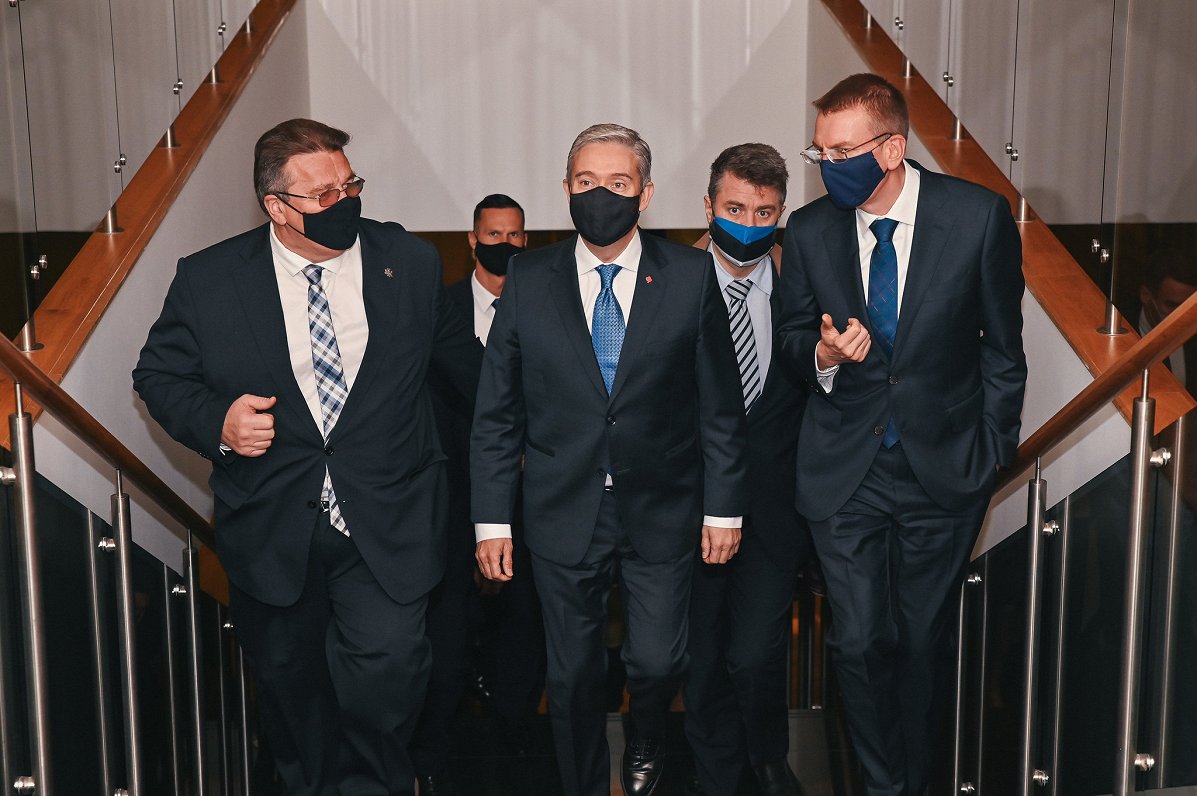According to a release from the Latvian Ministry of Foreign Affairs, "During the meeting, Edgars Rinkēvičs together with the Lithuanian Foreign Minister, Linas Linkevičius, the Estonian Foreign Minister, Urmas Reinsalu, and the Canadian Foreign Minister, François-Philippe Champagne, discussed transatlantic cooperation, issues on the international agenda, including developments in Russia and Belarus, the Nagorno-Karabakh conflict, and other regional security matters."
Rinkēvičs thanked Canada for its valuable contribution to the strengthening of security of the Baltic region as framework nation taking the lead in the NATO enhanced Forward Presence battle group in Latvia.
According to the statement "The Ministers were in complete agreement that the crisis triggered by the COVID-19 pandemic has highlighted the importance of the transatlantic partnership. The EU and Canada are like-minded partners, said Edgars Rinkēvičs, adding, that by acting jointly we can demonstrate to the rest of the world that democratic societies can recover from the pandemic in the most effective way and return most rapidly to economic growth."
In Vilnius, the Ministers also met with a representative of the Belarusian opposition, president-elect Sviatlana Tsikhanouskaya, to hear her perspective on the state of play in Belarus.
"In a discussion on the situation in Belarus, Edgars Rinkēvičs welcomed the sanctions approved by the EU against Belarusian officials and Canada’s decision to also apply sanctions to Belarusian officials. At the same time, the Latvian Foreign Minister noted that the sanctions list for Belarusian officials should be kept open. Following the vote-rigging at the presidential elections on 9 August and crack-down on peaceful protests, Latvia does not recognise Alexander Lukashenko as a legitimate president. We believe that the Western partners must promote a dialogue between the authorities and the people and see to it that new elections are held in the presence of international observers, Edgars Rinkēvičs said," according to the statement.
Rinkēvičs also pointed out that Russia is not interested in improving relations with Western countries as evidenced by the fact that Russia ignores the concerns of the Western countries concerning the poisoning of the opposition politician, Alexei Navalny, while spreading disinformation about the use of “Novichok” and the events of World War II, as well as introducing new hurdles to democracy and freedom of speech in Russia.




























